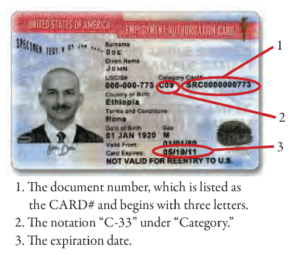The Trump administration has already announced its goal to end the Deferred Action for Childhood Arrivals (DACA) policy commenced on June 15, 2012 by President Obama within the next six months post the decision of the U.S. Supreme Court on June 18 finding that the decision of the Department of Homeland Security (DHS) to end the DACA policy was arbitrary and capricious under the Administrative Procedures Act (APA). The Court’s decision to overturn the Trump administration’s termination of DACA is a major reprieve for nearly 700,000 DACA recipients, who will be able to live, work, and study in the U.S. at least until congressional or agency action. The DACA policy provided discretionary relief from deportation for those entering the United States (U.S) before the age of 16 and provided them the opportunity to apply for work authorization.
On June 19, U.S. Citizenship and Immigration Services (USCIS) posted a press release indicating that the Supreme Court’s decision, “… has no basis in law and merely delays the President’s lawful ability to end the illegal “Deferred Action for Childhood Arrivals” amnesty program.” The announcement is an unusual public challenge by a federal agency to a decision of the Supreme Court.
We have a presidential election on November 3, which may change this threat of ending DACA by year-end, but what does the Supreme Court decision mean for DACA recipients in limbo and those who might be able to apply for DACA benefits versus just to renew them?
Will those qualifying for DACA be able to submit an initial DACA application?
While we are waiting for guidance from USCIS on the resurrection of DACA post the Supreme Court’s decision, it is expected that first time DACA applicants meeting the requirements of the policy should be able to submit their I-821D and I-765 work authorization applications.
Will I be able to renew my DACA status and apply for work authorization?
Yes, again while waiting for guidance from USCIS, current DACA recipients should be able to renew their status and obtain work authorization. Of course, applicants must not have been convicted of a felony, a significant misdemeanor, or three or more misdemeanors and not pose a threat to national security or public safety. A DACA renewal request requires the I-821D, I-765, and I-765 worksheet along with the required fee of $495.00 ($410.00 filing fee plus $85.00 biometric fee) for the I-765 work authorization form. There is no filing fee for the I-821D form. In the past, DHS followed the June 15, 2012 DHS memorandum (DACA Memorandum) for the processing of DACA renewals.
What are the basic criteria to qualify for DACA?
The following criteria must be satisfied before an individual is considered for an exercise of prosecutorial discretion pursuant to DACA:
- Were under the age of 31 as of June 15, 2012;
- Came to the U.S. before reaching his/her 16th birthday;
- Have continuously resided in the United States since June 15, 2007, up to the present time;
- Were physically present in the U.S. on June 15, 2012, and at the time of making his/her request for consideration of deferred action with USCIS;
- Had no lawful status on June 15, 2012;
- Are currently in school, have graduated or obtained a certificate of completion from high school, have obtained a general education development (GED) certificate, or are an honorably discharged veteran of the Coast Guard or Armed Forces of the U.S.; and
- Have not been convicted of a felony, significant misdemeanor, or three or more other misdemeanors, and do not otherwise pose a threat to national security or public safety.
Will advance parole be reinstated for DACA status holders to allow them to return to the U.S. after international travel?
Since the Supreme Court ruled that DACA was terminated unlawfully, we expect that advance parole should be reinstated following current advance parole requirements. Again, we don’t know when USCIS will act to reinstate the option.
DACA recipients receive work authorization cards with a C33 category code.
Does a receipt for timely filing an extension of DACA work authorization automatically extend work authorization?
No. USCIS has indicated that DACA renewal applicants may file their applications more than 150 days before expiration, but again we are waiting for confirmation of this option among many others post the Supreme Court’s decision.

Source: DACA Fact Sheet, U.S. Citizenship and Immigration Services, November 20, 2012.
Are DACA recipients protected from removal from the U.S.?
The quick answer is No. Note that DACA recipients are required to show that they had no lawful status on June 15, 2012 in the U.S. Unlawful presence in the U.S. is a basis for removal from the U.S. under 8 USC §1227(a)(1)(B).
In December of 2019, Immigration and Customs Enforcement (ICE) began asking immigration courts to reopen administratively closed deportation cases against DACA beneficiaries with no criminal record. ICE confirmed to CNN that “re-calendaring of administrative closed cases is occurring nationwide and not isolated to a particular state or region.” In addition, a Freedom of Information Act (FOIA) request filed by the news organization, ProPublica, revealed in April of 2020 that ICE has broad access to DACA information from applications submitted to USCIS.
It is important to compare this information with the response provide by DHS regarding whether information shared on a DACA application would be used for immigration enforcement –
A10: Information provided in this request is protected from disclosure to U.S. Immigration and Customs Enforcement (ICE) and U.S. Customs and Border Protection (CBP) for the purpose of immigration enforcement proceedings unless the requestor meets the criteria for the issuance of a Notice To Appear or a referral to U.S. Immigration and Customs Enforcement under the criteria set forth in USCIS’s Notice to Appear guidance (www.uscis.gov/NTA). Individuals whose cases are deferred pursuant to the consideration of deferred action for childhood arrivals process will not be referred to ICE. The information may be shared with national security and law enforcement agencies, including ICE and CBP, for purposes other than removal, including for assistance in the consideration of deferred action for childhood arrivals request, to identify or prevent fraudulent claims, for national security purposes, or for the investigation or prosecution of a criminal offense. The above information sharing policy covers family members and guardians, in addition to the requestor.
This policy, which may be modified, superseded, or rescinded at any time without notice, is not intended to, does not, and may not be relied upon to create any right or benefit, substantive or procedural, enforceable by law by any party in any administrative, civil, or criminal matter.
DACA recipients have always had to balance the risk of potential removal from the U.S. with obtaining temporary authorization to work in the U.S. This same difficult decision remains for those attempting to apply for DACA in this expected window opened by the Supreme Court decision last week. Congress should act to provide a path to citizenship for qualified DACA recipients, but any legislative hope this year for action are unlikely.
What can employers do?
Employers can provide updates to their workforce regarding the decision and recommend that employees seek counsel regarding potential eligibility and options.
About the Author:
Kathleen Campbell Walker is a member of Dickinson Wright PLLC and serves as a co-chair of the Immigration Practice Group. She is a former national president and general counsel of the American Immigration Lawyers Association (AILA) and is Board Certified in Immigration and Nationality Law by the Texas Board of Legal Specialization. She serves on the AILA Board of Governors. In 2014, she received the AILA Founder’s Award, which is awarded from time to time to the person or entity, who has had the most substantial impact on the field of immigration law or policy in the preceding period (established 1950). She has testified several times before Congress on matters of immigration policy and border security.

